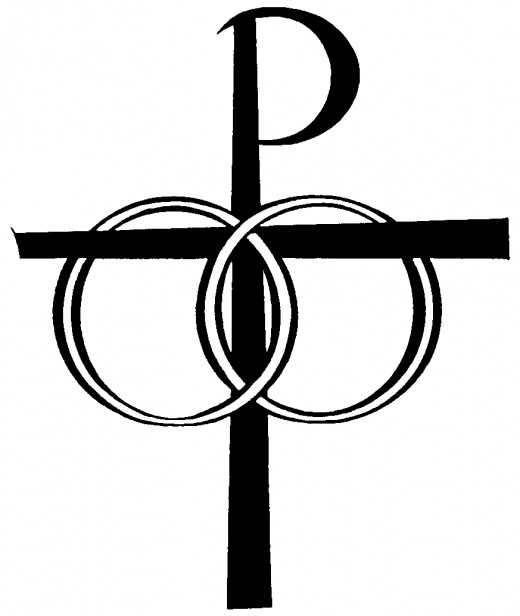Why is Marriage Indissoluble? Part I

Introduction
The question of the indissolubility of marriage, especially concerning when and why, is still a pertinent question. Marriage is the primal sacrament and the basis of family life, and thus must be safeguarded for the future of vocations. Furthermore, with the worldviews of relativism and proportionalism gaining influence among modern theologians and laity, as well as the high divorce rate, the question about the permanence of the marriage still needs to be taught.
Since the Second Vatican Council renewed the Church’s teaching on marriage, there has been no single greater champion of the sacrament than Pope Saint John Paul II, who’s Theology of the Body, as well as his love-focused anthropology has furthered the cause of the sacrament. Using his anthropology, this paper will first give a brief summary of the history of marriage as a sacrament, then proceed to outline the basic arguments concerning marriage indissolubility, and finally seek to distinguish and synthesize these arguments into a coherent answer to the question. This paper establishes that marriage is essentially indissoluble through consent, ratified through consummation, and fruitful through the mutual lived faith of the partners.

History of the Sacramentality of Marriage
A sacrament, as defined as an “efficacious signs of grace, instituted by Christ and entrusted to the Church, by which divine life is dispensed to us”. They require both the matter and form to be valid.
Sacraments impart grace regardless of the disposition of the priest, however, since God’s grace must always be actively accepted, the one receiving a Sacrament must always have proper disposition toward God (they must at least implicitly acknowledge they wish to receive grace and draw closer to God). This is why all Sacraments should have a dimension of worship to them. Thus, both members must be baptized, and at least one Catholic.
For much of the early Church, marriage was not formally a Sacrament, but considered a social institution. This is despite the fact that teachings on marriage are found throughout the New Testament and some talk of the holiness and sacredness of marriage by the fathers. In 1184, Pope Lucius III defined marriage as a Sacrament. This teaching was reaffirmed at Trent and clarified through centuries of Canon law, Ecumenical Councils, and theology through Vatican II.
The history of marriage as a Sacrament is important because the line between consent and consummation as the defining moment of the Sacrament has always been blurred, and various theologians have explained it differently. What is most important is that, because it is a Sacrament, marriage imparts grace through its proper reception, and a failure to properly receive, enter into, or perform the Sacrament causes an invalid marriage in which indissolubility is not even an issue.

Arguments Concerning the Indissolubility of Marriage
Consent
The argument that marriage is indissoluble from consent has been the predominant position of most of the Church fathers and Canon Law. Can.1056 states, “The essential properties of marriage are unity and indissolubility, which in Christian marriage obtain a special firmness by reason of the sacrament.” Immediately following that Can. 1057 §1. States, “The consent of the parties, legitimately manifested between persons qualified by law, makes marriage; no human power is able to supply this consent,” and §2, “Matrimonial consent is an act of the will by which a man and a woman mutually give and accept each other through an irrevocable covenant in order to establish marriage.”
This means:
1) marriage is indissoluble by reason of the Sacrament
2) the consent is manifest between the two people being married by an act of the will (and not by law)
3) it is this very consent that binds the two in an “irrevocable covenant”.
Thus, the consent of partners is its essential matter.
Further support is that the marriage of Mary and Joseph was based solely on consent (for they never consummated the marriage) and appears as the “essential constitutive element” of marriage in Roman Law. Augustine believed so forcefully in the essentialness of consent, he taught marriage could be at its fullness without the couple engaging in consummation. This argument is also strongly supported by the view that marriage is a contract.
However, Lawler argues that consent can be given without a true belief in, knowledge of, or desire for the grace that the sacrament endows. Furthermore, Lawler argues against the ability of marriage to be ex opere operato, because it is ministered by the couple themselves and because the reception of the Sacrament depends so heavily upon the disposition of the recipient. Thus the minister and receiver become the same, and the disposition of the minister becomes inconsequential. Finally, Lawler argues that if consent were the only criteria for a valid marriage, then two people who decided to marry for reasons other than love would technically have a valid marriage. Bekker argues against the first point by pointing out that if there is any vincible ignorance or fault of disposition before the marriage vows, it is not a valid marriage in the first place.

Consummation
As De Reeper states, the focus on consummation derives from the Jewish perspective that marriage is made for procreation. Thus, “the result was that sexual intercourse gradually became part of the constitution of marriage while consent always remained central.” Even the emperor Gratian recognized that consummation only “adds” to consent.
The confusion arises from the long standing tradition, starting with Alexander III, of non-consummated marriages as dissolvable. In fact, there are cases where the Church has dissolved a valid but un-consummated marriage. Perhaps the best distinction is that, while a consensual marriage is “indissoluble in principle,” a “ratified,” consummated marriage is “indissoluble in fact.”
Lived Faith
Michael Lawler is the predominant advocate for the “lived faith” argument of marriage permanence. He discusses the sacramental “marriage matrix” (the two dimensions of giving and receiving that make up every “saving event”) by emphasizing the fact that marriage as a sacrament is both the giving of grace through the sacrament and the reception of said grace by the proper disposition of the couple. Lawler calls this disposition “mutual marital love." Lawler uses a statement from the Roman Rota to show his point:
Where marital love was lacking, either the consent is not free, or it is not internal, or it excludes or limits the object which must be integral to have a valid marriage… lack of marital love is the same as lack of consent. Marital love has juridical force here, because the defendant despised the total communion of life which primarily and of itself constitutes the object of the marriage contract.
Therefore, Lawler’s argument is
1) marital love is the essence of indissolubility in marriage
2) if marital love is lacking the marriage is not valid
3) marital love develops over the course of marriage
4) no marriage is indissoluble at the moment of consent, but rather at the eventual point in which the couples come to the highest form of marital love (which to Lawler is not the first act of consummation).
Lawler seems to make a very convincing argument here: the validity of a sacrament does require a proper disposition to the sacrament, and a marriage that is not fruitful is a sign that the marriage is invalid. However, the implications of his argument are clear: marriage is indissoluble only at an undetermined future date in which the couple is said to have achieved the “fullness” of marital love—an act that is doubtful to be achieved without the grace of the sacrament in the first place.
© 2012 R D Langr




